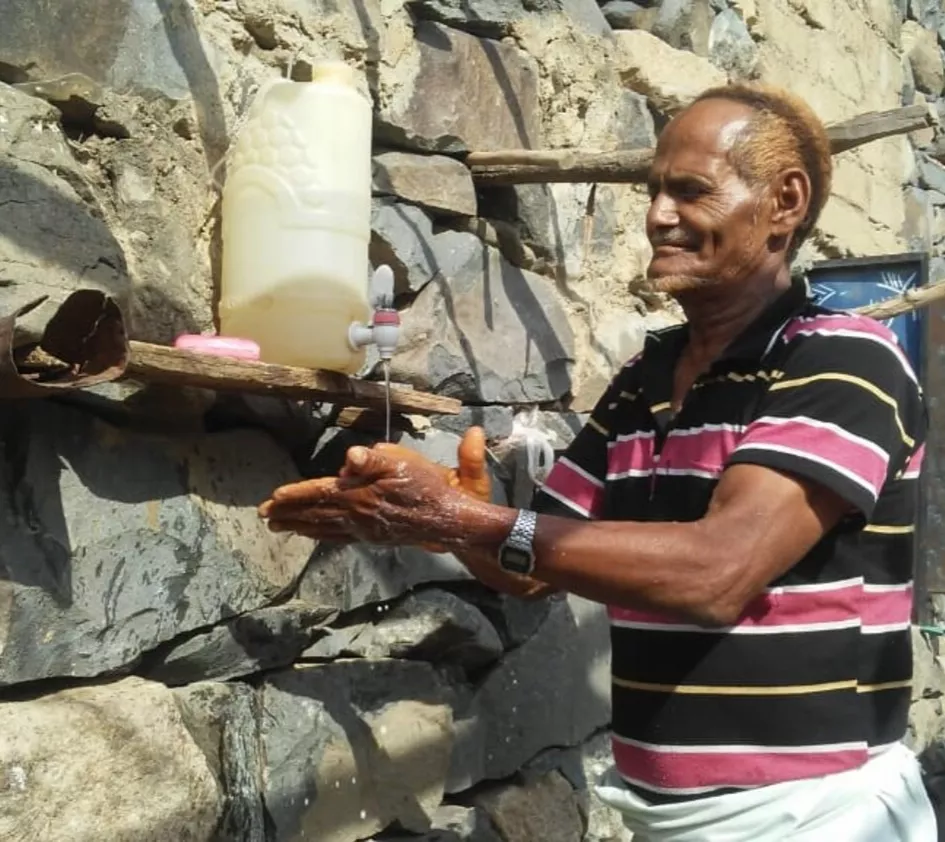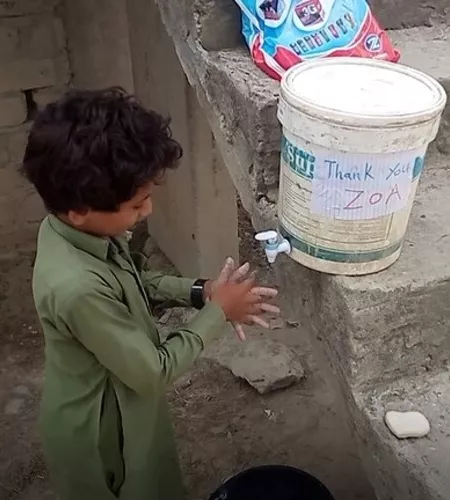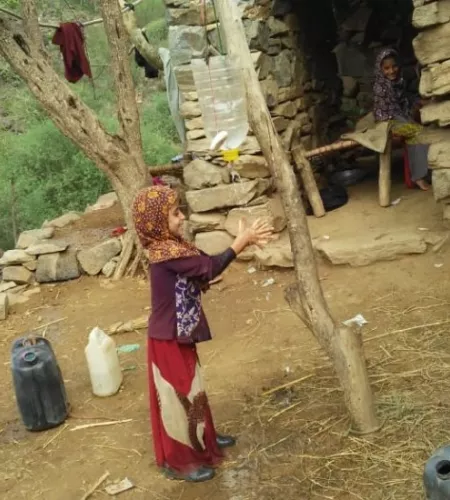In this project, ZOA targeted the remote sub-district of Al-Jabal in the Al-Shaghadrah district with a population of 74,045 individuals with activities related to water supply, latrine provision and hygiene promotion. Hygiene promoters from the community were selected and trained to increase hygiene awareness in the community regarding positive hygiene practices. These skills are crucial in the prevention of COVID-19.

Yemen: building safe and clean handwashing facilities, using cheap and recycled materials
Yemen suffers immensely from water scarcity due to its arid and semi-arid climatic conditions. In most regions of the country there is acute shortage of drinking water and water for domestic use.
Water, Sanitation and Hygiene (WASH)
Yemen suffers immensely from water scarcity
The Al-Shaghadrah district in the Hajjah governorate is unfortunately one of the areas greatly affected by this issue. Since February 2020, ZOA has been working in the area on a Water, Sanitation and Hygiene (WASH) project funded by the European Union Civil protection and Humanitarian Aid (ECHO).
Walking long distances to fetch water
One of the families we supported in Al-Jabal sub-district is the family of Saif Ali Mohamed Hakeem, a 39-year man who lives with his two daughters (10 and 8 years old) and his wife. They reside in a small house in Bait Al Hakeem village, with very difficult access to safe water, health and education. The family is poor and has no income. It is really difficult for Saif to meet the daily food needs.
In the past, previous to the war, the situation was better. The food was cheaper and Saif used to work in the market and earned enough to maintain his family. Access to safe water is another problem the family faces. The children would often help their mother walking long distances to fetch water. However, the polluted water aligned with lack of hygiene awareness and poor hygiene practices makes the children easily and often very sick (particularly from diarrhoea), increasing the health costs for the family. Like most of his neighbours, Saif’s family used to only wash their hands before eating using for that an open water container and no soap.

Construct your own handwashing facility
ZOA’s community hygiene promoters visited Saif and his family and informed them on the main causes of diarrhoeal diseases including cholera, the importance of handwashing with soap particularly in critical times, how to correctly wash their hands and COVID-19 hygiene prevention measures. In addition, they showed the family a video, teaching them how to build a safe and clean handwashing facility, using cheap and recycled materials.

Saif thanked the ZOA team for their support: “We are happy with the facility, it is economical and keeps us healthy. Now I can live with my family without worrying about diseases.” The community promoters also explained the family the benefits of such facility for water saving and even for reduction of health costs as proper handwashing could help prevent diseases. Saif, the household head was eager to build his own handwashing facility. He even came up with his own construction consisting of a closed water container with a tap and soap nearby. This simple model is economical in water use and can be easily repaired or reconstructed by Saif himself or his family members.
The handwashing facilities in combination with the increased hygiene awareness in the community is a great life-saving intervention for the 6104 people of Al Jabal sub-district and ZOA together with ECHO is happy to contribute to increased life quality in the communities we serve.
Read more about our activities in Yemen.
